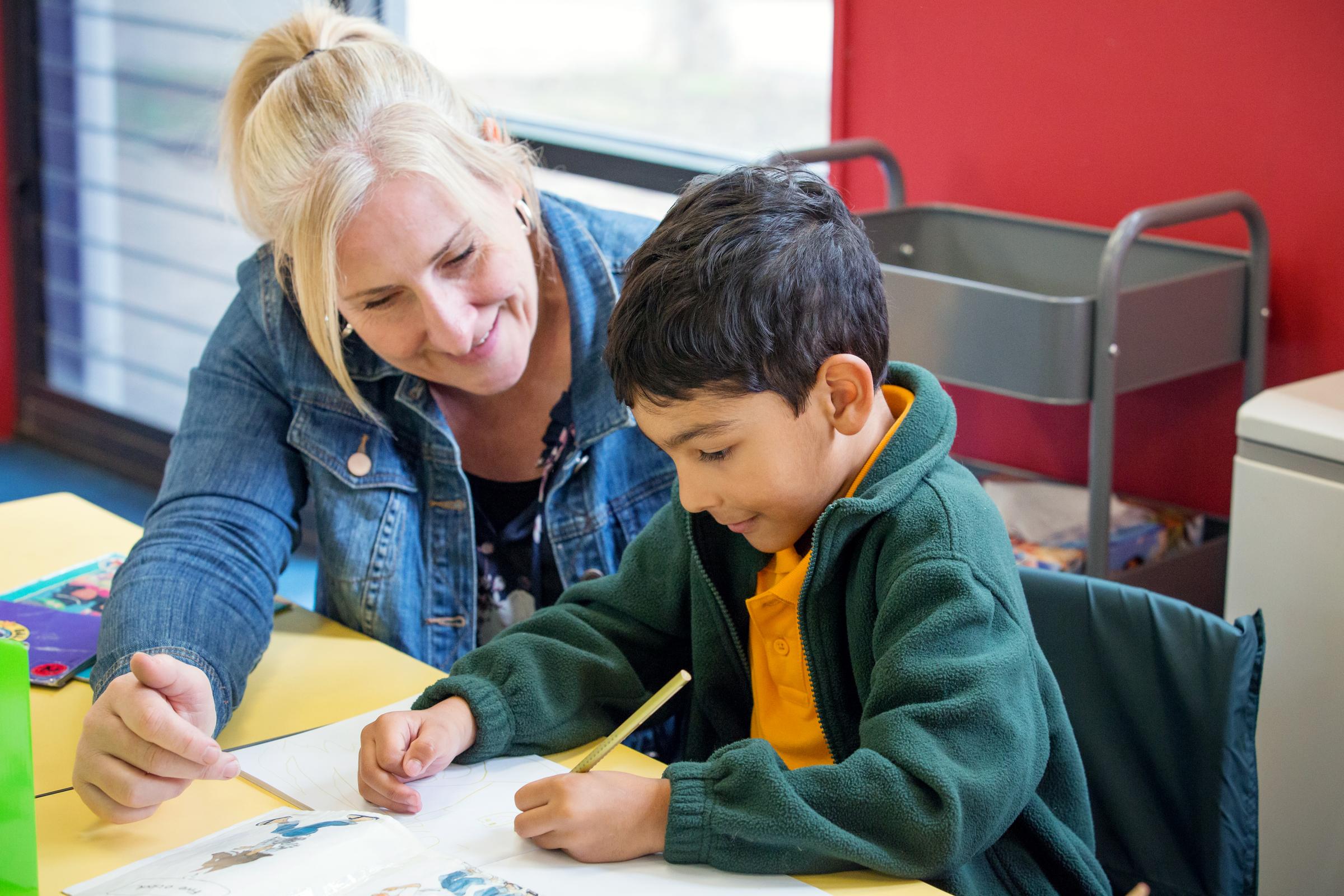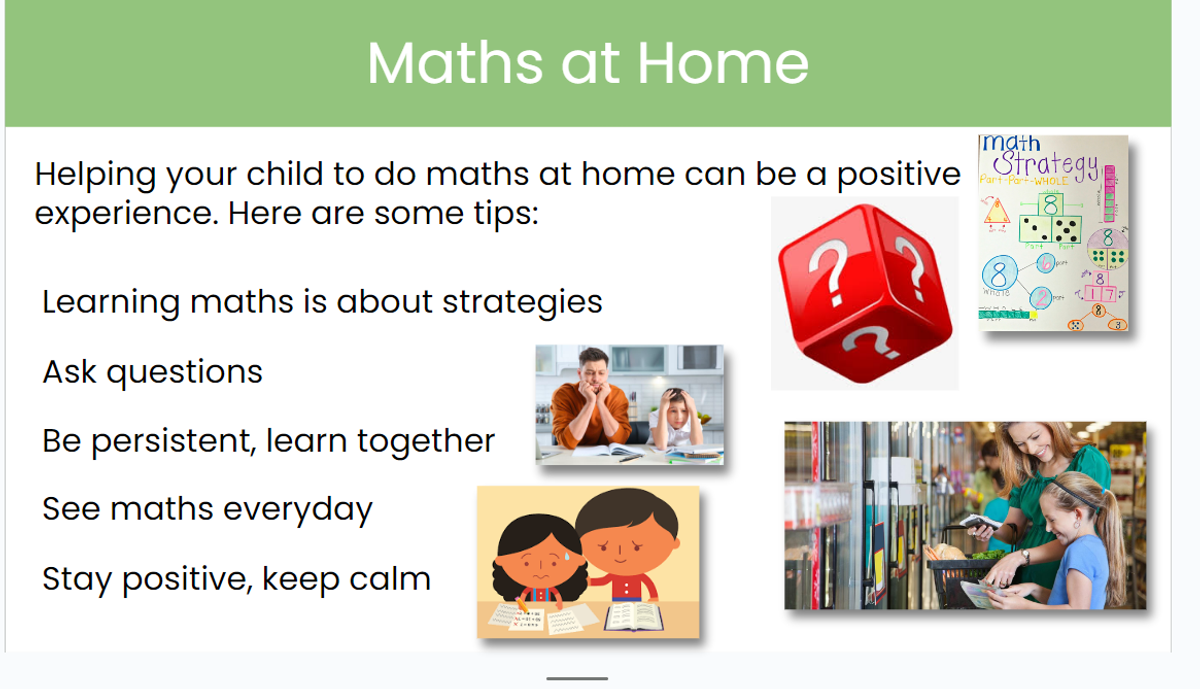Teaching and Learning
Mrs Peta Phillips - Acting Assistant Principal

Teaching and Learning
Mrs Peta Phillips - Acting Assistant Principal


Many of our families often ask teachers how they can best help their child with maths at home. As we know, maths is everywhere, and we have many 'teachable' moments throughout the day where we can support our children with their understanding of maths. This week, our Numeracy Leader, Simone Vitas ran a very informative session on how we at Karoo teach maths and I wanted to highlight the aspects of how parents and carers can support their child at home.
Have a read of our top tips which have been resourced from MAV (Maths Association Victoria)
LEARNING MATHS IS ABOUT STRATEGIES
Much of the actual maths is the same as what you may have learnt. Although learning maths is becoming more about understanding the reasoning and using a variety of different strategies to do maths. The strategies you learnt at school are still valid too! Teachers value students using many strategies to solve problems and develop thinking.
ASK QUESTIONS
You don’t have to know the answers! Nor do you have to know how to get there. Just ask questions and let your child think it through. Here are some of our favourites:
• What thinking did you use to get this far?
• What else could you try, is there another way?
• What could a next step be?
• How could you find out more about what to do?
• Do you think others may do something different?
BE PERSISTENT, LEARN TOGETHER
Maths can be challenging. Rather than saying ‘I can’t do that’, or ‘It’s too hard’, say ‘I can’t do that yet,’ or ‘We will work it out together’. Research shows parental support is a major factor for student success at school. Celebrate achieving small steps in solving a problem. Persist, be supportive and remember to focus on the thinking, not getting answers.
SEE MATHS EVERYDAY
There is plenty of maths around you to develop numeracy skills, such as calculating, measuring, using numbers, interpreting data and graphs, recognising patterns, and using language to develop mathematical understanding. Ask questions about the maths in activities like cooking, exercise, sport, budgeting and shopping. Playing games is also a fun way to practice and experience maths.
STAY POSITIVE, KEEP CALM
Don’t pass on your baggage, this is not about you! Let your children experience maths positively, we need maths for everyday life, and maths graduates have excellent career opportunities. Don’t say ‘I was never good at maths’ or ‘I never liked maths’. Maths can, and should be, really fun!
Ref: MAV Maths Association Victoria
Peta Phillips
Acting Assistant Principal

